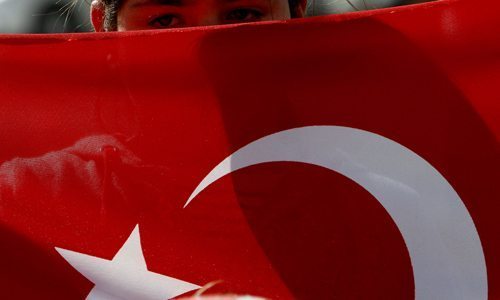Weltweit stellt man sich verzweifelt die Frage, was Recep Tayyip Erdogan wohl möchte und wohin er die Türkei führen wird. Dies angesichts der Tatsache, dass Erdogan ein gläubiger Moslem ist und sich zunehmend mit den moslemischen Nachbarn verbündet.
Bislang hat Erdogan aus der Türkei keine fundamentalistische Diktatur gemacht. Seit er das Amt des Ministerpräsidenten übernommen hat, ist die Türkei eher demokratischer geworden. Die Grundlagen der kemalistischen Republik bleiben bestehen, wobei die Möglichkeiten der Armee, sich in die Politik einzumischen, erheblich geschmälert wurden. Der Dialog mit den Minderheiten in der Türkei wird wahrgenommen, und Parlamentarismus, Meinungs- und Medienfreiheit wie auch der Status des Obersten Gerichtshofs bleiben unverändert erhalten.
Quelle: ;
Avi Primor


Kommentare
Eine Antwort zu „Erdogan in de Gaulles Fußstapfen“
German to English translation
FRANKFURT REVIEW
June 20, 2010
Column
Erdogan in de Gaulle’s footsteps
Worldwide it is desperately asked what Recep Tayyip Erdogan will want
and where it will lead to Turkey. This view of the fact that Erdogan
is a devout Muslim and increasingly allied itself with the Muslim
neighbors.
So far, Erdogan from Turkey has not made any fundamentalist
dictatorship. Since he took over as prime minister, Turkey has become
more democratic. The foundations of the Kemalist Republic shall be
maintained, with the possibilities of the army to interfere in
politics, have been greatly diminished. The dialogue with the
minorities in Turkey is perceived, and parliamentary government,
freedom of expression and media freedom as well as the status of the
Supreme Court remain unchanged.
With the neighbors – the Muslim republics of the former Soviet Union,
Iraq, but also with Syria and, above all with Iran – to the Turkish
Relations in a very substantive issues in greater depth. With Israel,
there is turbulence, and the Americans are angry, because Turkey has
voted in the UN Security Council sanctions against the Iranian
program.
There is the precedent of an important member of the Western alliance,
which has paved the Americans have similar concerns. It was Charles de
Gaulle in the 1960s. The French president has recognized Red China at
that time, flirted with the South Americans against the U.S. and
relaxed especially his commitment to NATO. He still has his
fundamental and deep-seated, not the least ideological link to the
Western democracies never called into question. He wanted to be a
vassal of the Americans, but an equal partner. For this he needed
independently, links to the Communist and the Third World. This was de
Gaulle to the Americans to win more weight. Relations with Israel, he
has developed largely in parallel to the relations with the Arab world
and relaxed only on the eve of the Six Day War in favor of the Arab
countries.
Even Turkey’s Erdogan and remain fundamentally linked to the Western
world as well as with NATO. The relationships with their neighbors
should – apart from bilateral interests – Turkey’s increasingly
self-employment and consequently gain more weight in its relations
with the West. Relations with Israel are important, especially as long
as they do not impede parallel relations with the Arab world.
Because of the deterioration in the chances of peace between Israel
and the Palestinians and between Israel and Syria, it has become since
a couple of years for Turkey, however, increasingly difficult to
maintain the policy of the parallel relationships. The next proposed
in favor of relations with the Islamic world. So far, Erdogan avoided,
however, be detrimental to the basics of mutual interests of both
countries. This means that the development of a peace process between
Israel and its neighbors could also promote the restoration of good
Turkish-Israeli relations. Turkey is neither the West nor lost for
Israel.